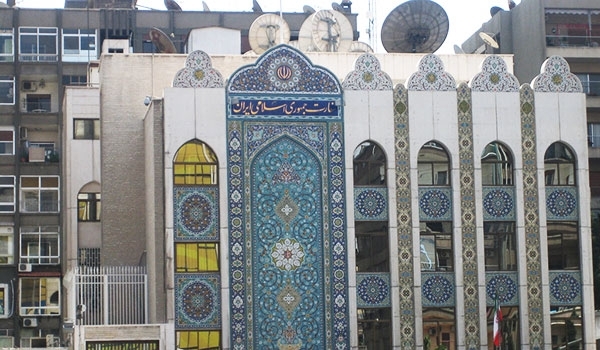The United Arab Emirates (UAE) joined a chorus of international condemnation on Tuesday after an airstrike heavily damaged the Iranian consulate in Damascus, Syria. While no group has officially claimed responsibility, fingers point towards Israel, which has a history of conducting airstrikes against Iranian targets in the region.
The attack, which reportedly killed several people, sparked immediate outrage from the Iranian government. Tehran vowed a "decisive response" and accused Israel of a blatant violation of international law. The strike also drew condemnation from Syria, with Foreign Minister Faisal Mekdad calling it an "atrocious terrorist attack" that targeted innocent lives.
The UAE's Ministry of Foreign Affairs issued a statement expressing its disapproval of the targeting of the Iranian diplomatic mission. This condemnation is noteworthy given the recent warming of relations between the UAE and Israel, with the two countries normalizing diplomatic ties in 2020. Analysts suggest the UAE's stance highlights the potential for regional destabilization if the attack ignites a wider conflict.
Beyond the immediate condemnation, the incident raises concerns about the fragile security situation in Syria. The country remains embroiled in a long-running civil war, and the presence of various foreign militaries adds to the volatile mix. The attack on the Iranian consulate could further escalate tensions between Iran and Israel, potentially drawing Syria and other regional players into the fray.
The international community is now urging restraint and calling for all parties to respect the principles of diplomatic immunity. The United Nations Secretary-General, António Guterres, reaffirmed the inviolability of diplomatic and consular premises and called for upholding international law.
The attack has also reignited discussions about the ongoing tensions between Iran and Israel. Both countries have been engaged in a shadow war for years, with accusations of mutual sabotage and targeted killings. The strike on the Iranian consulate could be seen as a significant escalation in this ongoing conflict.
The coming days will be crucial in determining the potential for a wider conflict. Iran's promised "decisive response" could take many forms, ranging from cyberattacks to military action. How Israel reacts to this pressure will also be a significant factor in determining the trajectory of the situation.
The international community is closely watching developments and urging all parties involved to prioritize diplomacy and de-escalation. The attack on the Iranian consulate serves as a stark reminder of the potential for regional instability and the importance of upholding international norms.

